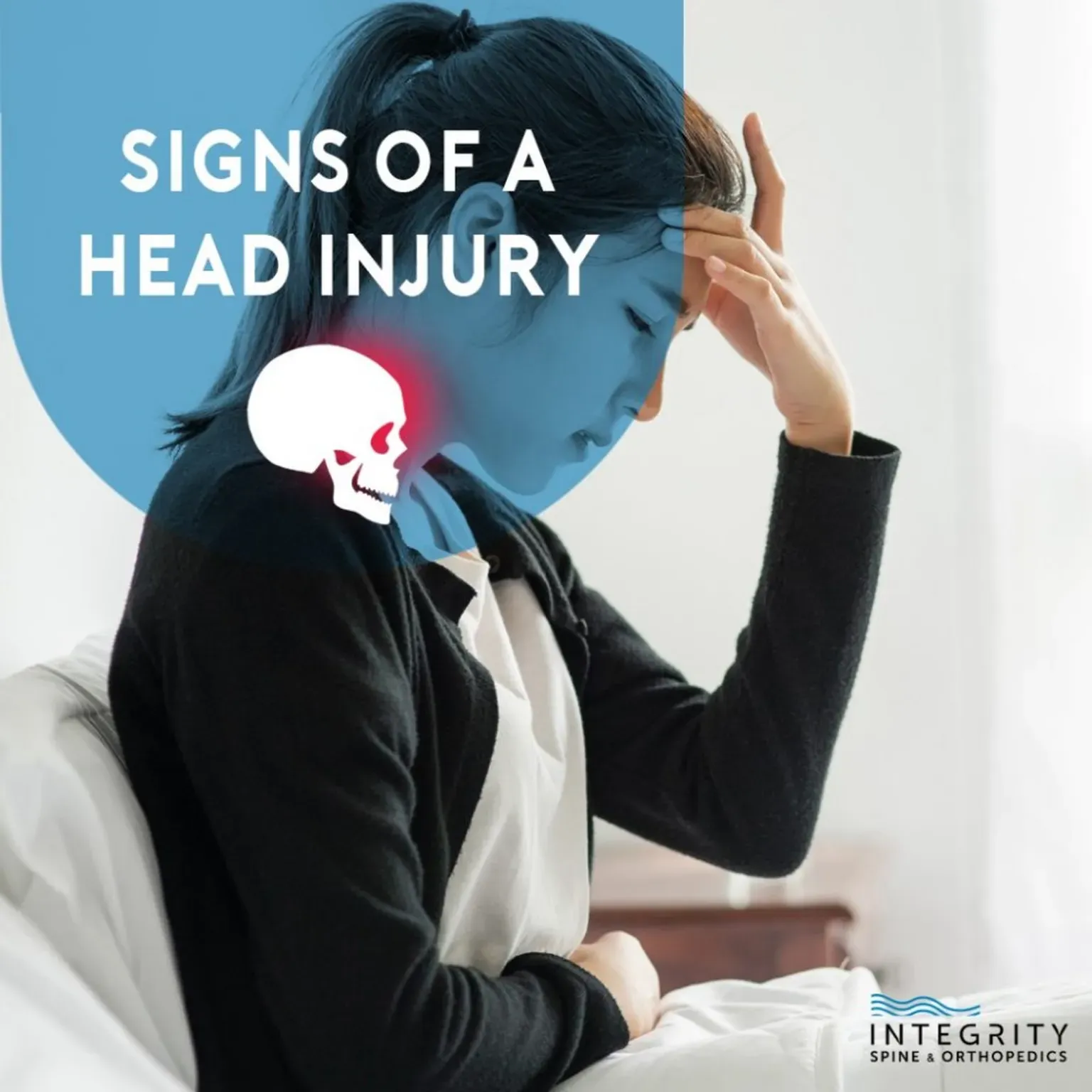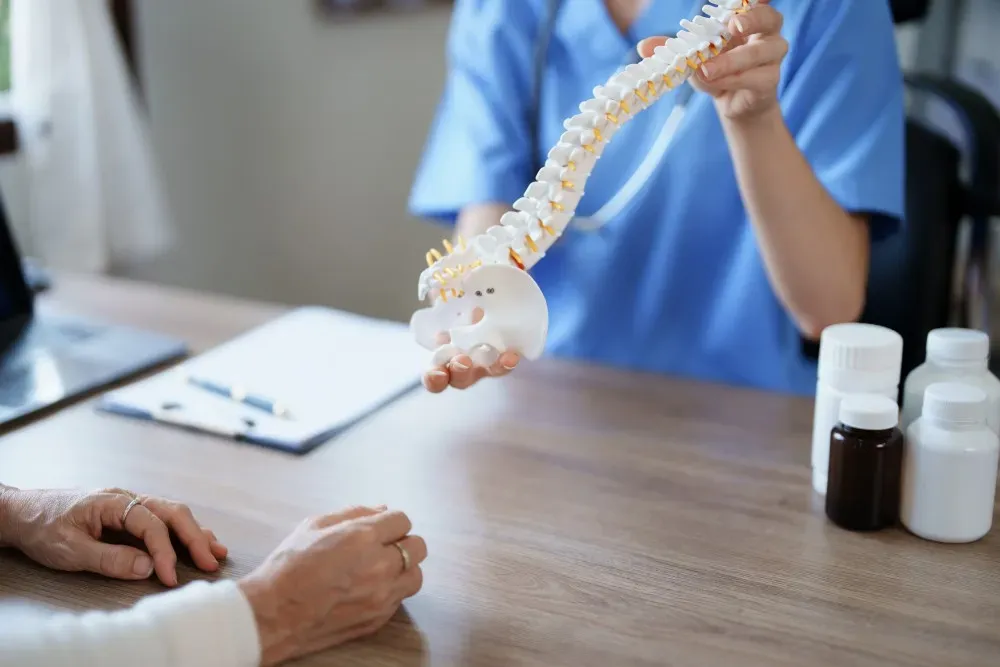Neurosurgery & Orthopedic Surgeons in Jacksonville

Signs and Symptoms of a Head Injury
A head injury is any injury that affects the brain, skull or scalp. Head injuries can range in severity from a mild bump, bruise, or scrap, to a severe brain bleed or traumatic brain injury (TBI).
A head injury is any injury that affects the brain, skull or scalp. Head injuries can range in severity from a mild bump, bruise, or scrap, to a severe brain bleed or traumatic brain injury (TBI).
Head injuries should be taken very seriously — if you experience any abnormal signs, symptoms or pain following an incident where you hit or jolted your head, see a doctor for an evaluation. Keep reading to learn more about head injuries and the signs and symptoms to be on the lookout for.
AN OVERVIEW OF HEAD INJURIES
The term “head injury” encompasses a whole range of injuries that affect the brain, scalp, skull or soft tissues and blood vessels in the head. A head injury that affects the brain is called a brain injury or traumatic brain injury (TBI), depending on the severity of the trauma.
Common types of injuries include:
- Concussion. A concussion — also called a mild traumatic brain injury — occurs when the brain is injured from a direct blow or rapid back-and-forth movement. Concussions usually cause temporary abnormal brain functioning.
- Hematoma. A hematoma is a blood clot within the brain. Hematomas are classified as subdural hematomas or epidural hematomas depending on their location. A blood clot is a very dangerous injury because it can lead to a build-up of pressure within the skull. Intracranial pressure may cause unconsciousness or death.
- Hemorrhage. Hemorrhage is bleeding within the brain. Hemorrhage is classified as subarachnoid hemorrhage or intracerebral hemorrhage depending on the location of bleeding.
- Skull fracture. A very hard blow can break or crack the strong skull bone.
- Diffuse axonal injury (DAI). A diffuse axonal injury occurs when the brain’s connective nerve fibers (axons) tear or sheer due to rapid movement or shaking of the brain. DAIs usually cause a coma.
- Contusion. A contusion is a bruise on the brain tissue.
The majority of head injuries are caused by shaking incidents or traumatic accidents that result in a direct blow to the head. Shaking injuries are more common among babies and children, but they can also occur among adults as a result of physical abuse. Head trauma can occur from motor vehicle and motorcycle accidents, falls, sports accidents, fights and other violent incidents, penetrating wounds from gunshot or shrapnel, or abuse.
Some injuries — like a hemorrhage or subdural hematoma — occur as a result of high blood pressure, bleeding disorders, or use of blood thinners. These types of head injuries are more common among older adults.
Head trauma is a serious condition that requires immediate medical attention and care. It’s difficult to assess the severity of a head injury by appearance alone — internal injuries like concussions or hemorrhages may not have visible symptoms. You should get checked out by a doctor after any incident that results in banging, jarring or shaking of the head.
Head and brain injuries can lead to permanent damage to the brain, mental and physical disabilities, amnesia, and even death.
SIGNS AND SYMPTOMS OF A HEAD INJURY
Head injuries present with a range of symptoms depending on the severity of the trauma. It’s critical that you know the signs and symptoms to look out for in yourself and others. Sometimes, symptoms of a head injury don’t present until hours or even days after the initial incident. If you have an accident that involves hitting or jolting the head, monitor yourself for abnormal symptoms over the next few days. The same goes for a family member, child, or significant other who has an accident that involves the head.
A mild head injury may cause the following:
- Headaches
- Nausea and vomiting
- Dizziness or loss of balance
- Ringing in the ears
- Blurred vision
- Drowsiness, fatigue or lethargy
- Sensitivity to light, sound, or smells
- Alteration in taste
- Confusion or disorientation
- Concentration problems
- Memory problems
- Irritability
- Difficulty sleeping
Mild to moderate head injuries cause the symptoms listed above. In addition, they may cause the following:
- Loss of consciousness
- Seizures
- Amnesia
- Personality changes or mood swings
- Repeated vomiting
- A worsening headache
- Slurred speech
- Agitation or aggression
- Dilated pupils
- Inability to focus the eyes
- Weakness and numbness
- Inability to stay awake and alert
- Leaking of clear fluid (cerebrospinal fluid) from the nose or ear
WHAT TO DO IF YOU SUSPECT HEAD TRAUMA
If you suspect that you, a family member, a child, or your significant other has suffered a head injury, seek medical care right away. If you or someone else is experiencing any signs of a moderate or severe injury from the list of symptoms above, call 911. Even a mild head injury can cause temporary or permanent brain damage and should be evaluated by a doctor.
Your doctor will diagnose the injury and the severity of the injury using the following tools:
- Glasgow coma scale (GCS). The GCS is a neurological exam used to assess a person’s level of consciousness and mental status.
- Evaluations. Your doctor will perform physical and neurological evaluations to check for signs of trauma. He or she will ask you about questions about how the accident occurred and how you feel. If you’re unable to answer questions, your doctor will ask a witness or family member.
- Imaging exams. Imaging exams like X-rays, MRIs and CT scans will reveal fractures, swelling, bleeding, bruising, clotting, and other signs of damage within the head and brain.
Mild head injuries may only require medications, rest and monitoring to ensure signs and symptoms don’t worsen. More severe injuries may require a hospital admission for monitoring, medications, surgery or rehabilitation to treat.
ABOUT INTEGRITY SPINE AND ORTHOPEDICS
At Integrity Spine and Orthopedics, we pair top-notch orthopedics and spine care with honesty and transparency to deliver the most satisfactory patient experience possible. If you’re living with acute pain or a chronic condition, stop letting it control your life. We’ll help you get the treatment you need to get back on your feet and back to doing the activities you love.
Call us today or reach out online to schedule your first appointment in our Jacksonville, FL clinic.




